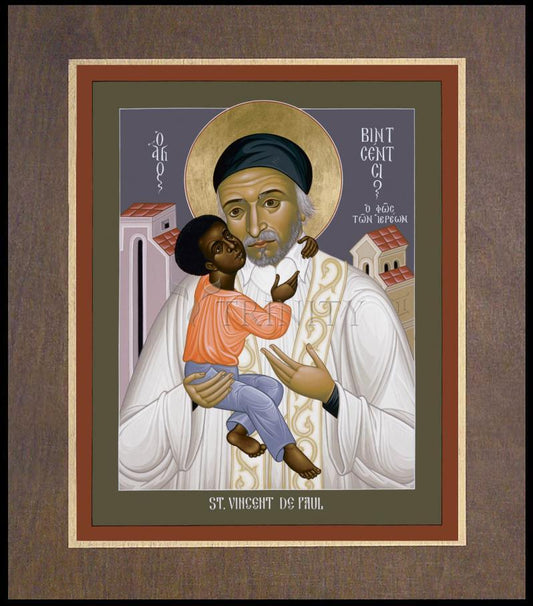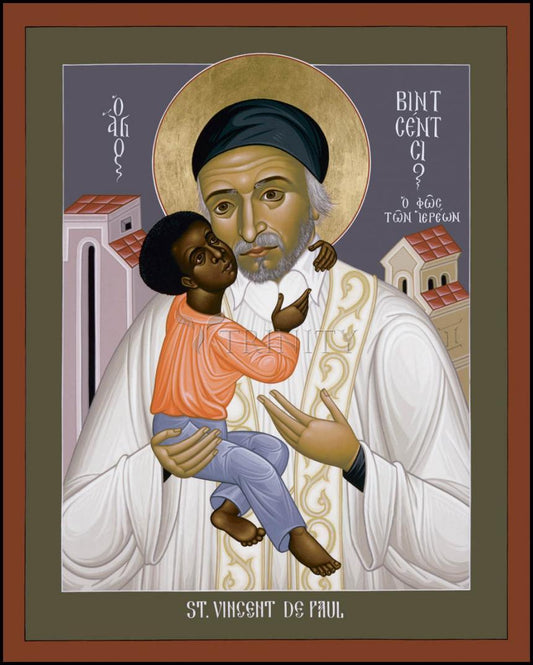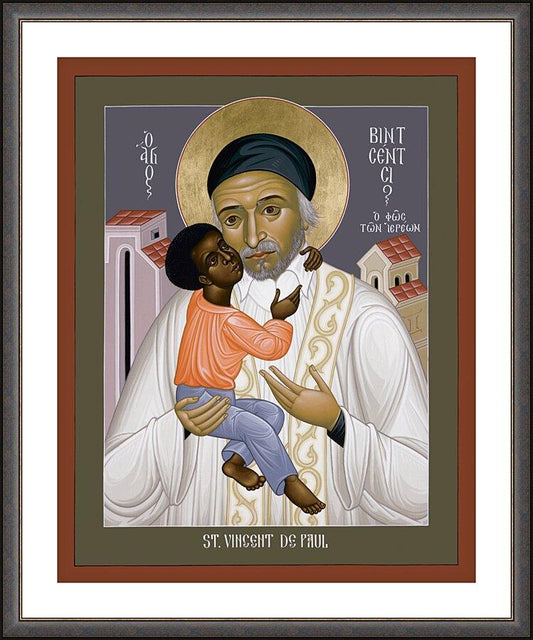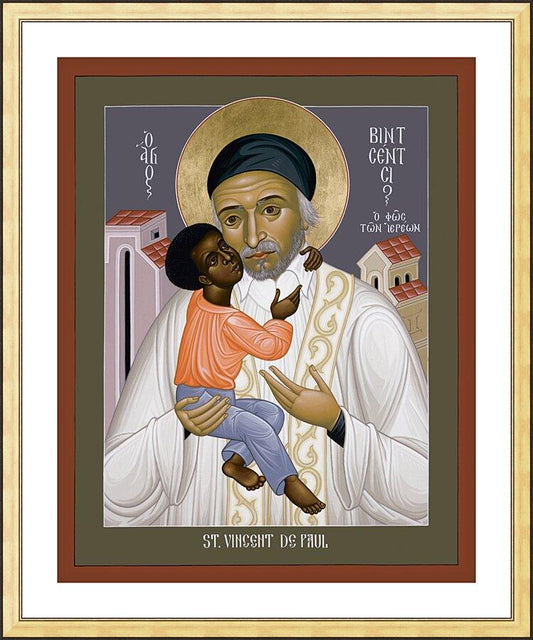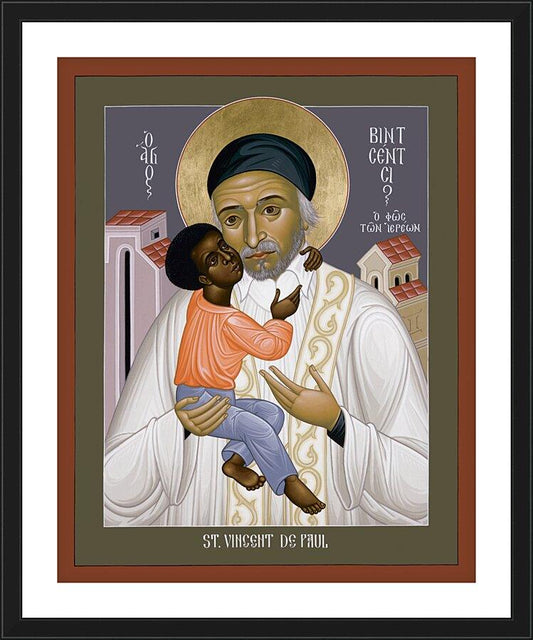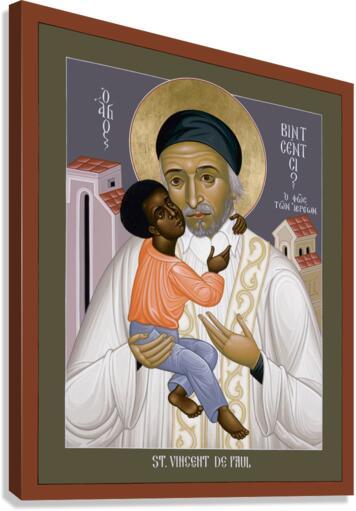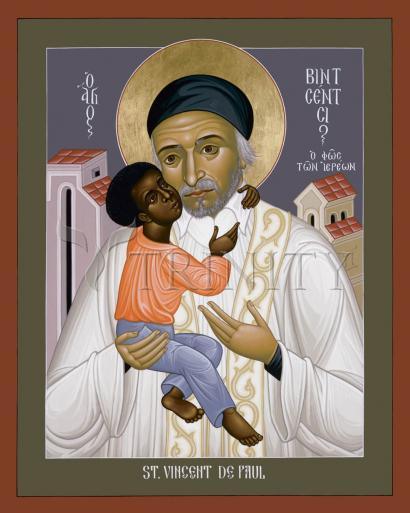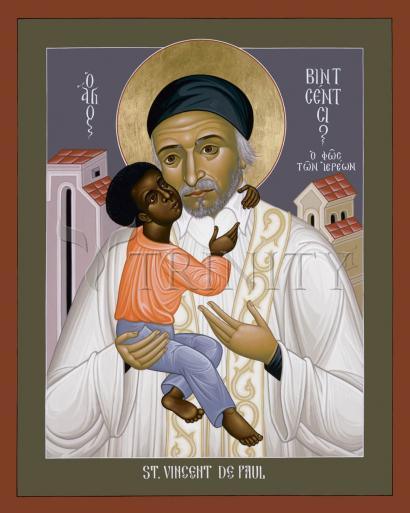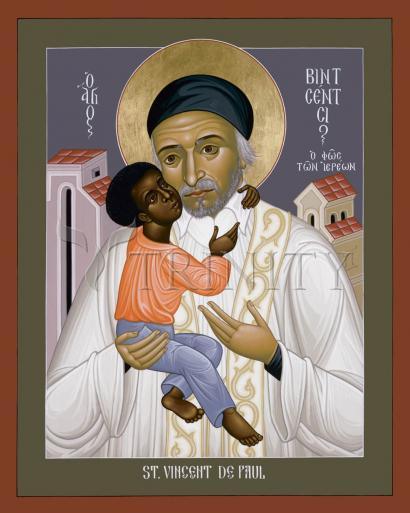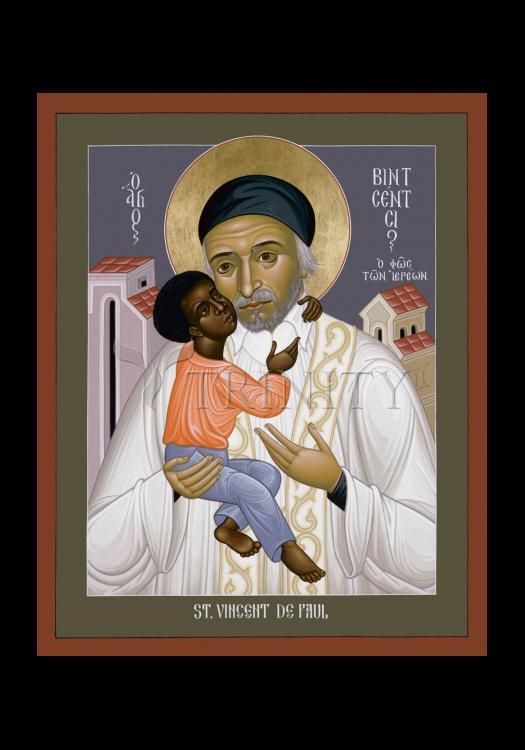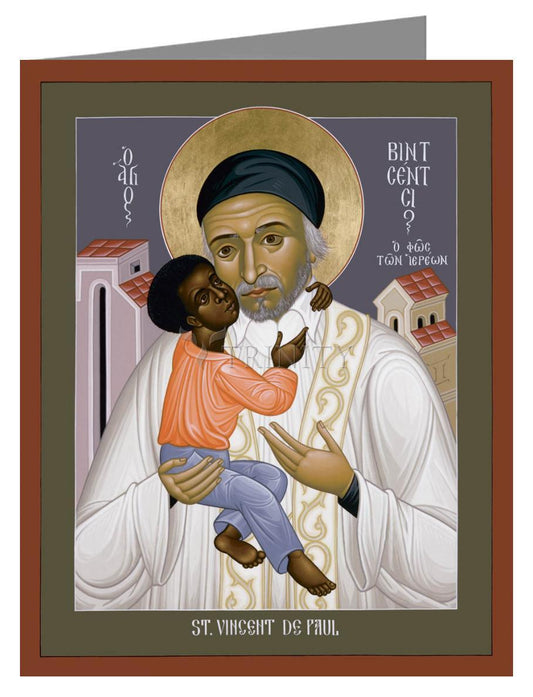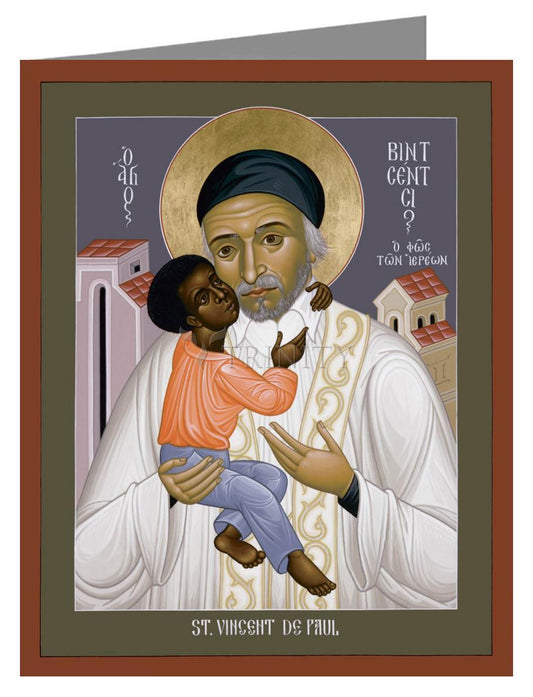Born at Pouy, Gascony, France, in 1580, though some authorities have said 1576; died at Paris, 27 September, 1660. Born of a peasant family, he made his humanities studies at Dax with the Cordeliers, and his theological studies, interrupted by a short stay at Saragossa, were made at Toulouse where he graduated in theology. Ordained in 1600 he remained at Toulouse or in its vicinity acting as tutor while continuing his own studies. Brought to Marseilles for an inheritance, he was returning by sea in 1605 when Turkish pirates captured him and took him to Tunis. He was sold as a slave, but escaped in 1607 with his master, a renegade whom he converted. On returning to France he went to Avignon to the papal vice-legate, whom he followed to Rome to continue his studies. He was sent back to France in 1609, on a secret mission to Henry IV; he became almoner to the Queen Marguerite of Valois, and was provided with the little Abbey of Saint-Léonard-de-Chaume. At the request of M. de Berulle, founder of the Oratory, he took charge of the parish of Clichy near Paris, but several months later (1612) he entered the services of the Gondi, an illustrious French family, to educate the children of Philippe-Emmanuel de Gondi. He became the spiritual director of Mme de Gondi. With her assistance he began giving missions on her estates; but to escape the esteem of which he was the object he left the Gondi and with the approval of M. de Berulle had himself appointed curé of Chatillon-les-Dombes (Bresse), where he converted several Protestants and founded the first conference of charity for the assistance of the poor. He was recalled by the Gondi and returned to them (1617) five months later, resuming the peasant missions. Several learned Paris priests, won by his example, joined him. Nearly everywhere after each of these missions, a conference of charity was founded for the relief of the poor, notably at Joigny, Châlons, Mâcon, Trévoux, where they lasted until the Revolution.
After the poor of the country, Vincent's solicitude was directed towards the convicts in the galleys, who were subject to M. de Gondi as general of the galleys of France. Before being convoyed aboard the galleys or when illness compelled them to disembark, the condemned convicts were crowded with chains on their legs onto damp dungeons, their only food being black bread and water, while they were covered with vermin and ulcers. Their moral state was still more frightful than their physical misery. Vincent wished to ameliorate both. Assisted by a priest, he began visiting the galley convicts of Paris, speaking kind words to them, doing them every manner of service however repulsive. He thus won their hearts, converted many of them, and interested in their behalf several persons who came to visit them. A house was purchased where Vincent established a hospital. Soon appointed by Louis XIII royal almoner of the galleys, Vincent profited by this title to visit the galleys of Marseilles where the convicts were as unfortunate as at Paris; he lavished his care on them and also planned to build them a hospital; but this he could only do ten years later. Meanwhile, he gave on the galley of Bordeaux, as on those of Marseilles, a mission which was crowned with success (1625).
Born: 1581 near Ranquine, Gascony near Dax, southwest France; now known as Saint-Vincent-de-Paul, Landes
Died: 1660 at Paris; body incorrupt
Canonized: 1737 by Pope Clement XII



